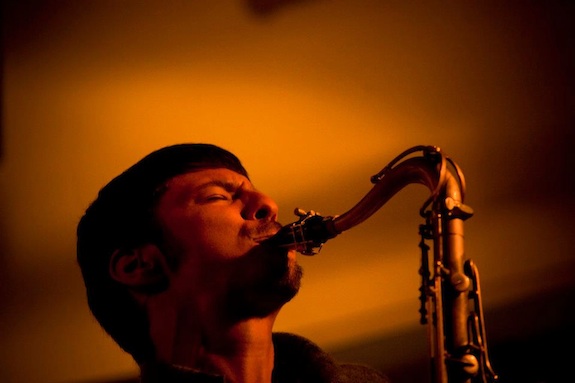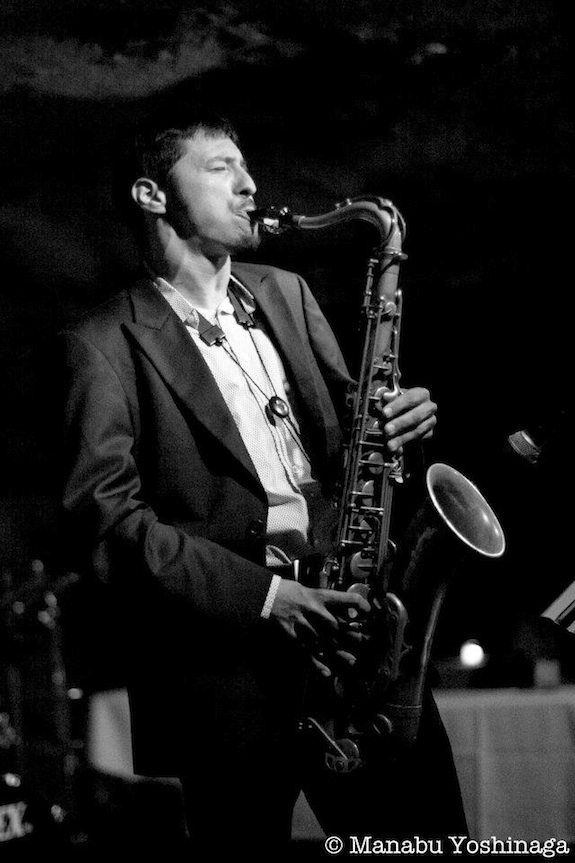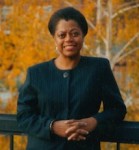The Making of a Millennial Jazz Musician: Elijah Jamal Balbed
After being put in “baby jazz” in high school, Balbed has made a name for himself in the Washington, D.C. scene
![]()

Elijah Jamal Balbed performing. Photo by Jesse Allen
When I met Elijah Jamal Balbed, he was 19, wailed like an old bebopper, and had already been named “Best New Jazz Musician of 2010″ by Washington City Paper. He’d been recruited for a Jazz Appreciation Month performance at Meridian International to honor the Cold War jazz diplomacy of jazz masters like Dizzy Gillespie and Dave Brubeck. Along with jazz kids, ages 9 to 20, Balbed comprised an impromptu quintet that quickly owned the bandstand, following a performance by star bassist Esperanza Spalding.
As the kids rocked, bureaucrats clapped on beat, hooted with glee, and murmured about jazz kids in the hip hop generation. Hmm. Maybe we need to rethink America’s music diplomacy after all.
“It’s America’s classical music, so it (jazz) can’t die,” declares Balbed, now 23, recalling that meeting recently at the American Art Museum. He’d just concluded a set at the museum’s “Take 5!” jazz concert series where he, the junior member and leader of the group, had presented a program introducing the Early Compositions of Wayne Shorter to a mostly middle-aged audience of more than 200 people. Most of the music performed had been recorded on Vee-Jay Records, a Chicago label entirely owned and operated by African Americans, from its founding in 1953 until its demise in 1966. The label also recorded Lee Morgan, John Lee Hooker, Little Richard, Jerry Butler, and even the Beatles.
But education is one of Balbed’s strong suits. Along with communicating across generations. He knows how to get people jamming to straight-ahead jazz music and history as he brings home his focused message: ”music is more than just a back beat. . .just open up your ears a little and feel something past the notes.”

Performing in D.C. Photo by Manabu Yoshinaga
What the young musician wants audiences to feel is America’s cultural history. Sometimes as a soft hug, other times a bear-like squeeze. Jazz is his instrument of communication to transmit stories and feelings through the complex rhythms and compositions of artists like saxophonist/composer Shorter, now 80. The concert featured Balbed and the group: Alex Norris (trumpet); Samir Moulay (guitar); Harry Appelman (piano); Herman Burney, Jr. (bass) and Billy Williams (drums) performing early Shorter tunes like Blues A La Carte, Harry’s Last Stand and Devil’s Island.
Balbed credits mentors, past and present, with helping him find his passion for jazz, and developing an ear. Shorter has shaped American musical history as much as he has experienced it. His early career included stints with Maynard Ferguson’s Orchestra, Art Blakey and the Jazz Messengers, Miles Davis, forays into fusion with Davis and Weather Report, and collaborations with musicians from Brazilian vocalist Milton Nascimento and folk singer Joni Mitchell to rock artists Carlos Santana and Steely Dan. In 2000, Shorter formed the first acoustic jazz group under his name with pianist Danilo Perez, bassist John Patitucci and drummer Brian Blade.
Balbed was introduced to jazz as a freshmen at Albert Einstein High School in Silver Spring, Maryland, where “I hoped to get in the honors jazz band,” he recalled smiling. A hope quickly dashed by music director Joan Rackey. “She put me in the baby jazz band and told me, ‘you don’t listen to enough jazz yet.’ She was right. I give her a lot of credit for grooming me. ”
He also credits Paul Carr and the jazz studies program at Howard University. But most of all he credits Washington, DC, a city with a strong jazz history and present, for his music education and opportunities. He currently plays every Monday night with the house band at the historic Bohemian Caverns, dubbed the “sole home of soul jazz.”
“There’s such a strong jazz scene in DC,” he said. “There’s a lot to feed off of in the city. Throughout college I was able to start gigging around the city and progress.”
The next Take 5! program will be held February 21, from 5 – 7 pm. It features Mike “Bags” Davis and the music of Kenny Dorham. Balbed performs next February 15 at the Mid-Atlantic Jazz Festival in Rockville, Maryland and February 16 at the HR-57 Center for the Preservation of Jazz & Blues in Washington, D.C.

Joann Stevens of the American History Museum
Joann Stevens is program manager of Jazz Appreciation Month (JAM), an initiative to advance appreciation and recognition of jazz as America’s original music, a global cultural treasure. JAM is celebrated in every state in the U.S. and the District of Columbia and some 40 countries every April. Recent posts include Oscar Peñas: A Music Man on a Mission and Hawai`i’s Troubadour of Aloha